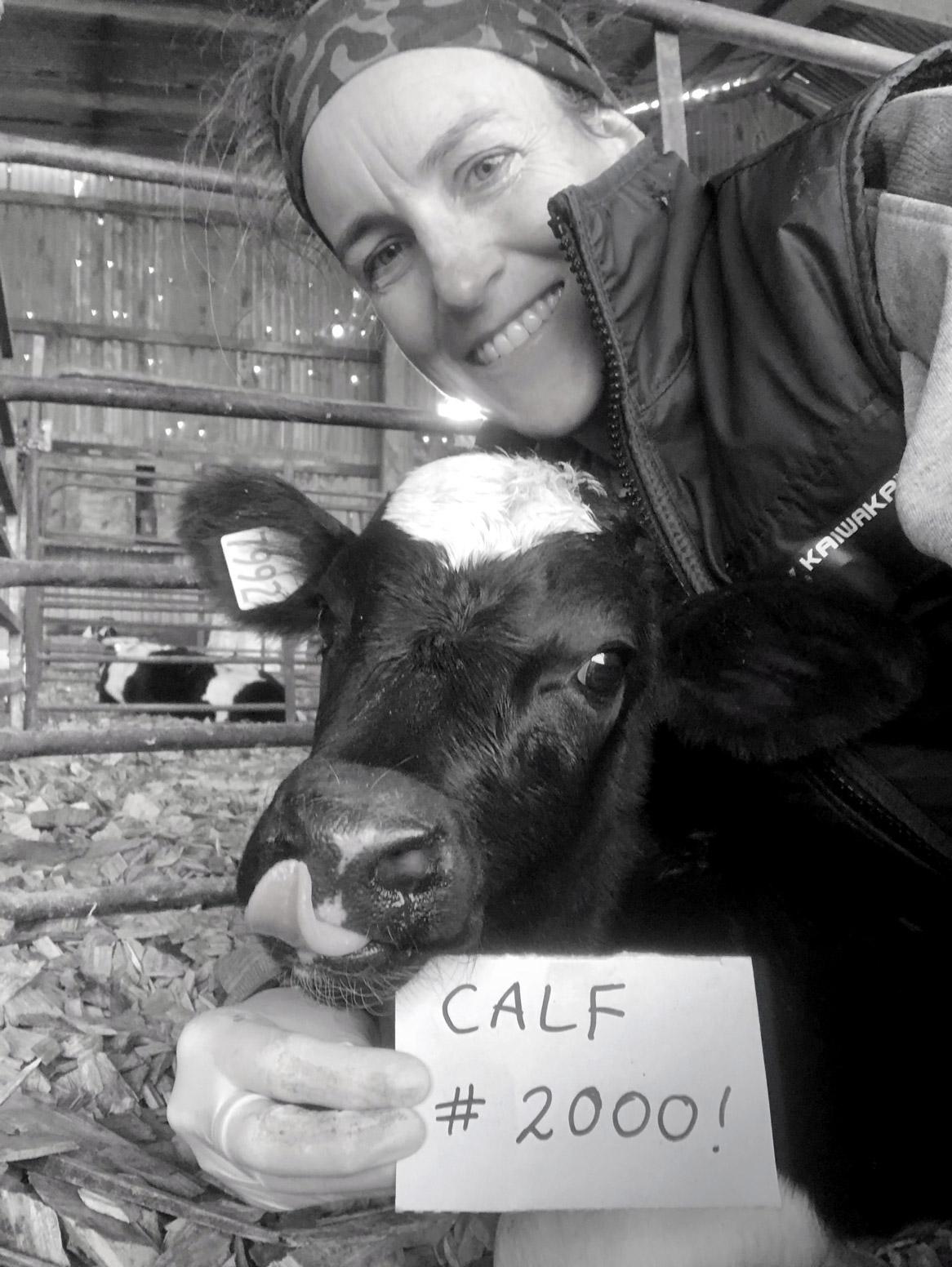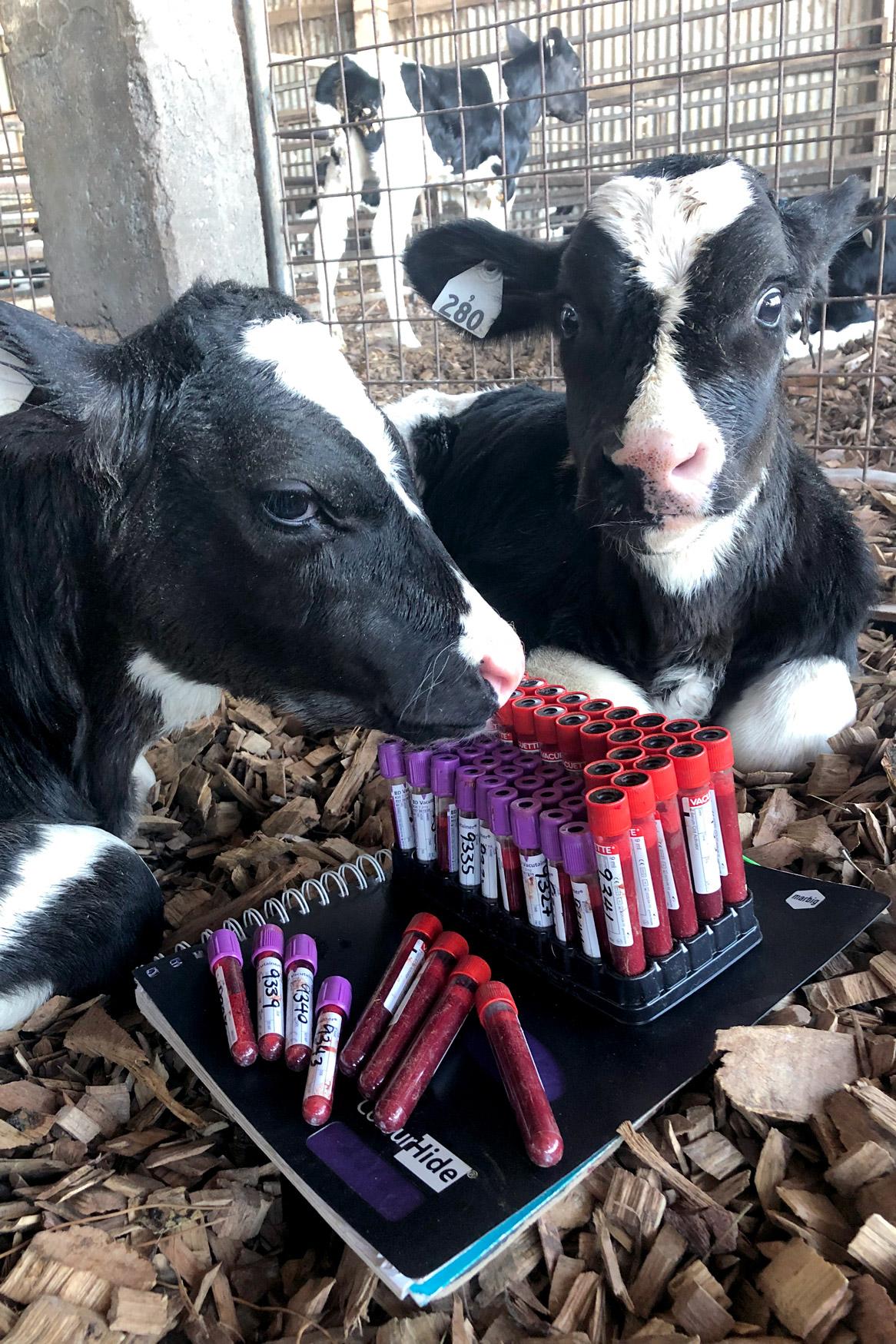How does colostrum affect dairy cow productivity?

Case study: Colostrum effects on dairy cow productivity
I was lucky enough to spend my childhood in some of South Australia’s most beautiful rural regions and by the age of 14, I had decided on a career as a vet. I studied Veterinary Science at Murdoch University and graduated in 2001 with BSc. and BVMS with academic honours.
Over the next decade, I established my career as a mixed practice vet and started a family with my husband, who is also a vet.
When I was pregnant with our second child, we bought a vet clinic from our retiring bosses and during maternity leave, I completed a Diploma in Business Management. Shortly after having our third child, I studied Certificate 4 in Teaching and Education and began some part-time lecturing with TAFE, while still working in, and managing our practice.
In 2018, I enrolled with University of Adelaide as an honours student. My project was to determine if there were any benefits of calves receiving colostrum from their biological dams, compared with colostrum from a single foster dam, or ‘pooled’ colostrum from multiple dams.

The project involved collecting newborn calves before they had a chance to suckle from their mothers, then allocating calves to each of the ‘treatment’ groups and measuring their progress. We measured each calf’s adequacy of passive transfer of immunity, weight, height and health status.
I hand-raised all 38 calves from birth to 6 months of age and continued to follow their progress - weight, height, blood parameters and fertility - until they were more than two years old.
The main findings from the project were that calves performed just as well with foster colostrum as they did with maternal colostrum.
We also found ‘pooled’ colostrum was generally poorer quality than maternal or foster colostrum, but even so, given adequate amounts of ‘poor’ colostrum at the correct time, it could still confer adequate transfer of passive immunity to most of the calves in that cohort.
Given that a lot of commercial dairy farms use ‘pooled’ colostrum for their calves, it was important to identify that the colostrum was likely to be poorer quality; BUT, if given in sufficient amounts, at the right time, it could still confer adequate transfer of passive immunity to the calves.
I was initially apprehensive about managing the honours study load amidst my other commitments, but the external program offered by the University of Adelaide allowed me to do most of my study from home, at times that worked around my other engagements. The online teaching facilities were well delivered, and my supervisors were amazing in their support for the entire 18 months.
We conducted some fun and successful field trials locally and on occasions, I travelled to the Roseworthy campus for a few days at a time, to deliver samples to the laboratory, to meet with my support team face to face, and to do seminars and intensive tutorials.
It was the perfect combination of work and study and in December 2019, I was awarded the Honours Degree for Bachelor of Science (Animal Science), with first class honours! But that’s not the end of my story... In May this year, I commenced my candidature for PhD with an estimated finish date of 2026.
Rebel Skirving
